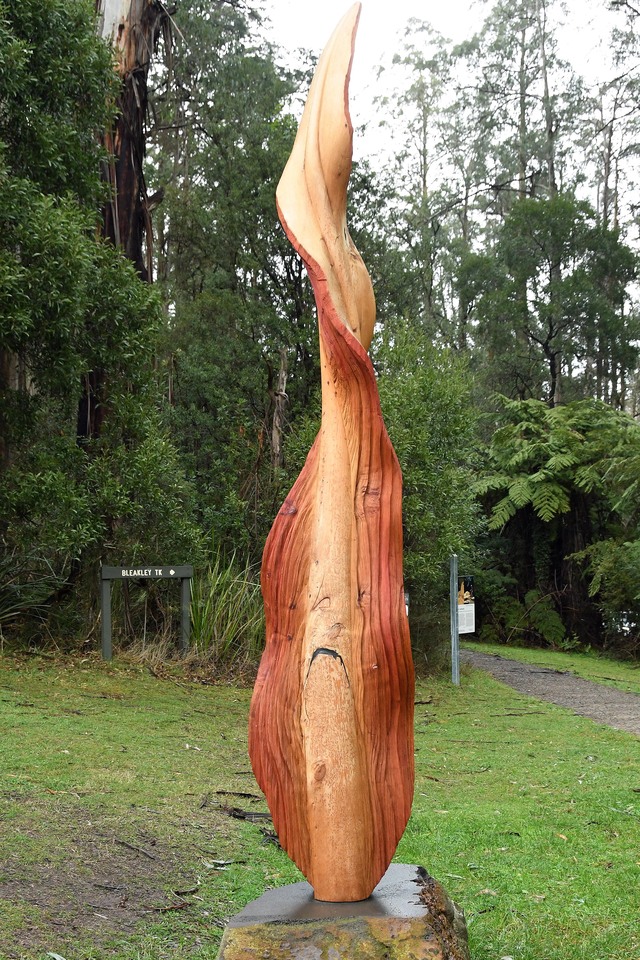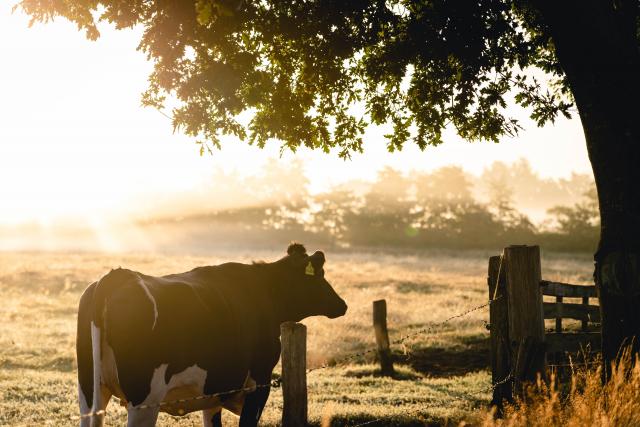One of Kilsyth’s most well known and loved community members, Jean Bridge, died just shy of her 100th birthday in October.
Born to Elizabeth and Harold on 25 October 1923, Jean and her siblings Bill and Elsie came to live in Kilsyth in 1936.
During World War II the family was able to purchase a small farm from the Wylie family in 1941 after Elizabeth inherited some money.
The 13 acre site, now known as the Elizabeth Bridge Reserve, was divided among Elizabeth’s siblings leaving her with 10 acres, something she would eventually pass onto Jean.
It was Jean who was instrumental in keeping the land for community space, giving then Lilydale Shire Council the option to purchase the acreage.
But to Jean’s nephew Graeme Bridge, that was the kind of person his aunt was – always giving to the people around her.
“Jean and my grandmother, they were very important in our growing up, extremely important and had a lot of influence on us. So we’re very lucky to have had them really,” he said.
“She got a lot of pleasure out of helping people.”
It was a trait she learnt from her mother, with Graeme telling the story of Miss Young who used to ask for a cup of flour or sugar when things got tough.
“In 1989, Aunty Jean was still taking food to her house. If nobody could give her a lift, she’d walk up Durham Road to get to Cambridge Road and give Miss Young her goodies on a Sunday afternoon,” he said.
“So Jean really got a lot of pleasure out of giving to people and helping people and I guess that’s why when she retired, she worked in an op shop in Collins Place in Kilsyth and she also worked doing Meals on Wheels, delivering food to people after that.”
Having lived through the war and being born into the Great Depression, Graeme said Jean “knew all about hardship”.
“The family was penniless at one point and that impacted on Jean and my dad and Jean’s sister Elsie, because they didn’t get birthday gifts at times or Christmas presents because the family had no money.
“The clothes were hand-me-downs, so if they got a new item of clothing that was a big deal. Aunty Jean always felt sympathy for the battlers and she always backed the battlers.”
Being such a personable and friendly person, Graeme said Jean knew a great number of people from her days volunteering and working in Croydon.
“She was very well liked and respected. And one of the things with Aunty Jean is she didn’t change. And she used to have a bun on the back of her head and she wore it like that probably from her 30s through to her 90s.
“So when she would go shopping with a friend Sharon down to Kilsyth or maybe go into Croydon, there would occasionally be people who would come up to Jean and say, ‘Are you Jean that worked in the toy shop?’ Because everyone could remember Aunty Jean from the toy shop in Croydon.”
One thing about Jean was her affinity for all things simple and cooking delicious food but Graeme always remembers her joy around special occasions.
“She had this childlike excitement for Christmas and birthdays and Easter. She loved to buy gifts for people and she also loved to receive gifts. She would get so excited about those things,” he said.
By most definitions, Graeme said people would look at Jean’s life and think she hadn’t done much but she had a sense of humour, was a great storyteller and “I’d say most of her pleasures in life came out of something to do with other people.
“She lived an incredibly simple life. She never had to apply for jobs and she always only worked in Croydon. She worked in Montrose for a short time, that was when the war had just broken out.
“But other than that, she worked in Croydon, and when one job finished, she just walked out and into another shop and started straight away in another one.
“She never had a driver’s licence or drove a car, was never in a relationship or had children. There’s so many things about her life that are just incredibly simple.
“And yet… she was incredibly happy in it and 33 Durham Road was her world. That was her empire and she was extremely happy there.”
Deciding to sell the land on Durham Road to the council came from a desire of Elizabeth’s for it to remain as a space for the community to enjoy, having had an offer from a developer in the 1970s which she declined.
Living on the farm himself from 1963 to 1978, Greame said to know it still exists in close enough form to what he grew up on is a legacy he and his family are incredibly proud of.
“It’s retained the land, there probably wouldn’t be too many people around who could say that where they grew up, it still exists, more or less the way it was.
“There’s a lot of trees still there that I used to climb as a teenager and it was a good place to grow up anyways. We had a lot of wildlife and there were blackberries in summertime and there was a dam there that we used to go swimming in, my mates and I every summer.”
Making regular visits to The Bridge House and the Reserve, Jean kept up with what was happening and Graeme said it used to bring her so much joy seeing everyone enjoying it as much as she did.
“She was extremely proud to see it kept as parkland for people to use because she was very happy, especially very happy when she saw people walking around the park and using it and going there for parties and that sort of thing.
“That made Jean very happy, indeed incredibly happy.”
Jean Bridge died on 15 October and is remembered by her nieces and nephews who loved her dearly.








